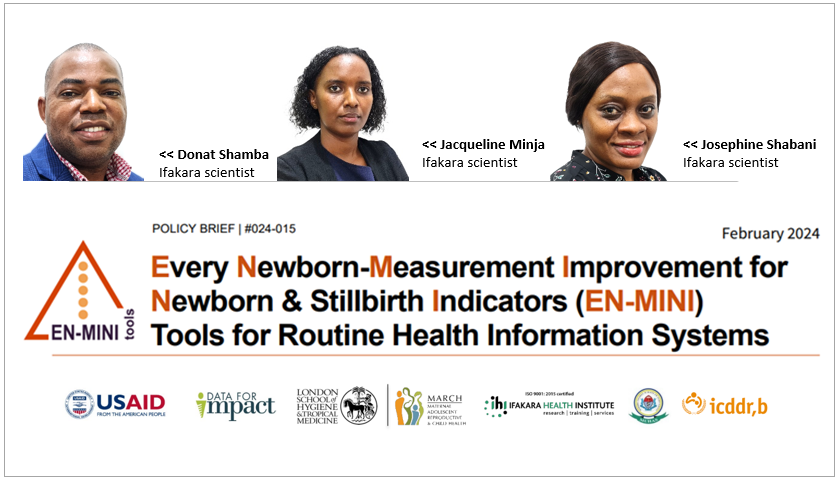
EN-MINI: Finally, tools for combating newborn deaths are here!

A global collaborative effort aimed to enhance the landscape of newborns and stillbirths care recently released a policy brief informing the stakeholders on a set of tools that can help a great deal to improve newborn and stillbirth care worldwide.
The two-page policy brief confirms that the “Every Newborn-Measurement Improvement for Newborn and Stillbirth Indicators (EN-MINI)” tools represent a significant advancement in the collective mission to combat preventable newborn and stillbirth deaths.
Three Ifakara Health Institute seasoned researchers - Donat Shamba, Jacqueline Minja, and Josephine Shabani – participated in producing the policy brief which was initially posted on the Data for Impact website recently.
The 7 tools are free, user friendly
The EN-MINI tools were designed for teams working to improve newborn data for action, including national and subnational policymakers, newborn program stakeholders, and routine health information (RHIS) technical experts.
“The seven EN-MINI Tools are ideally implemented as a package but can be used individually. The EN-MINI Tools are available in four languages — Amharic, English, French, and Swahili—through support from USAID and the Chiesi Foundation.
The team involved in the tool’s development
The EN-MINI tools were designed and made available through collaborative implementation research involving The London School of Hygiene & Tropical Medicine in the UK, Ifakara Health Institute in Tanzania, icddr,b in Bangladesh, and D4I.
From 2016 to 2020, a team from Every Newborn - Birth Indicators Research Tracking in Hospitals (EN-BIRTH), a multi-country study aimed at transforming newborn and maternal measurement in routine health systems, conducted a validation study in Bangladesh, Nepal, and Tanzania to assess the coverage and quality of maternal and newborn care measurements.
The study revealed variations in the quality of newborn data within routine health systems, prompting a subsequent investigation—EN-BIRTH Phase 2—to identify opportunities for enhancing data usability, ultimately leading to the development of the EN-MINI tools.
An EN-BIRTH expert advisory group of colleagues from WHO, UNICEF, the national governments of Bangladesh and Tanzania, and additional program newborn and measurement experts and academics provided important guidance.
Highlighting the importance of the tools, Josephine Shabani, a Research Degree Student & Statistician from the EN-BIRTH 2 study team said, "Data quantity and quality vary, but every country has data that can be used now to accelerate progress towards reducing neonatal mortality. Today, around 76% of babies worldwide are born in facilities, meaning facility data from routine health information systems could provide timely and critical information if data quality is maintained."
Why are tools important?
Through the use of EN-MINI tools, the team behind its design aims to meet global targets to end preventable newborn deaths and stillbirths each year by 2030. These tools facilitate the mapping of newborn data, enhance its utilization in decision-making processes, and assist in evaluating and enhancing the quality of newborn data.
Link to policy brief: https://ihi.or.tz/media/EN-MINI_Policy_Brief_-_024-015.pdf
